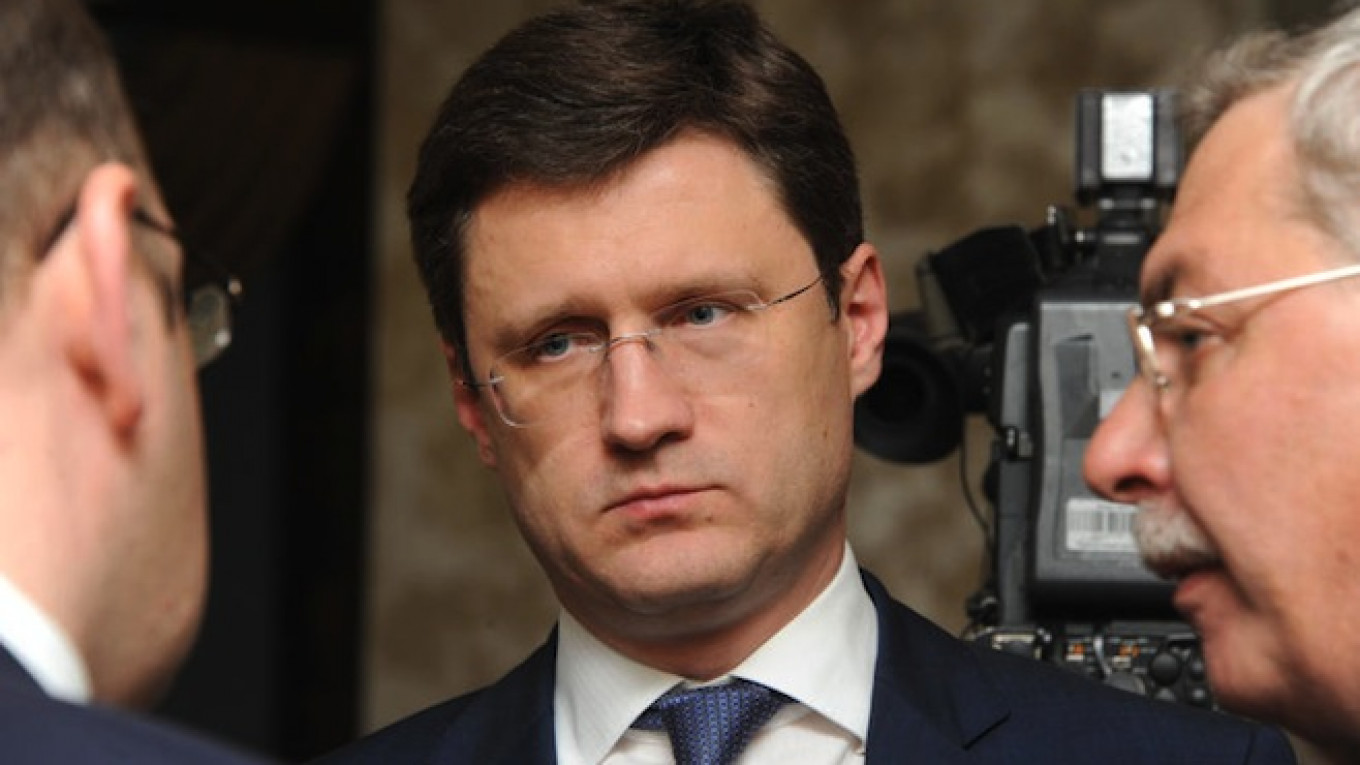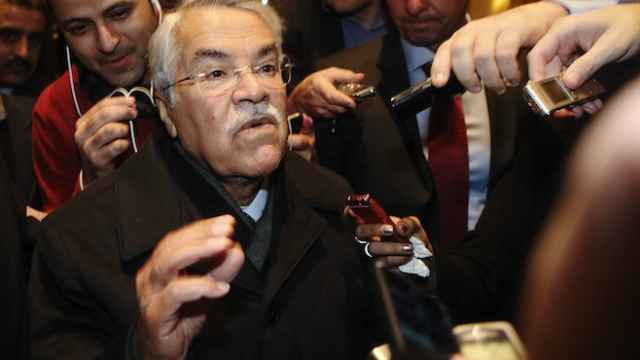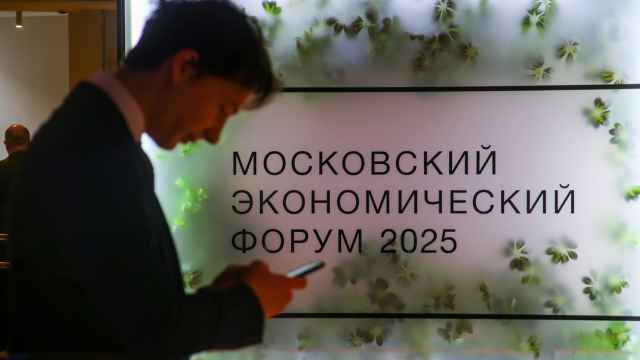Russian oil companies will keep production steady in 2015, Energy Minister Alexander Novak said Wednesday, after Moscow left a meeting with other major oil producers with no agreement on how to address weak oil prices.
Russia, which is not an OPEC member, has watched nervously as oil prices have fallen 30 percent since June and analysts say Moscow had hoped to convince other members and non-members to support a production cut at an OPEC meeting on Thursday.
After talks between Saudi Arabia, fellow OPEC member Venezuela and oil power Mexico ended without an agreement on Tuesday, Russia's message was clear — daily average oil production of around 10.5 million barrels will be maintained.
"We have got the plans which companies have embarked on for next year: (output) will be along the same lines as this year," Novak told reporters.
Russia is hoping to keep output stable by exploiting new areas such as the Bazhenov oil formation and Arctic offshore.
Novak, who was in Vienna on Tuesday, also said he was sceptical that OPEC would decide to cut output quotas to shore up oil prices which have fallen to around $78 per barrel.
"We don't know what decision will be taken tomorrow ... Consultations have been going on over recent days ... In general, I am sceptical that any decision on output cuts may be taken," Novak said.
Over the last couple of days Russia, which needs price of at least $100 per barrel to balance its budget, has been sending mixed signals to OPEC ranging from a possible slight cut in production to keeping its output flat to help prices.
Despite being among the world's top three crude oil producers, Russia is limited in its ability to rapidly cut or increase supplies to global markets, with some analysts suggesting it may see a natural decline in output in 2015.
Novak said that lower oil prices would close ineffective oil projects, decreasing output to support prices which should return to a "fair level."
At the same time, he added that Russia would not postpone its Arctic projects, while the Bazhenov oil formation was also continuing even under the current oil price.
A Message from The Moscow Times:
Dear readers,
We are facing unprecedented challenges. Russia's Prosecutor General's Office has designated The Moscow Times as an "undesirable" organization, criminalizing our work and putting our staff at risk of prosecution. This follows our earlier unjust labeling as a "foreign agent."
These actions are direct attempts to silence independent journalism in Russia. The authorities claim our work "discredits the decisions of the Russian leadership." We see things differently: we strive to provide accurate, unbiased reporting on Russia.
We, the journalists of The Moscow Times, refuse to be silenced. But to continue our work, we need your help.
Your support, no matter how small, makes a world of difference. If you can, please support us monthly starting from just $2. It's quick to set up, and every contribution makes a significant impact.
By supporting The Moscow Times, you're defending open, independent journalism in the face of repression. Thank you for standing with us.
Remind me later.






